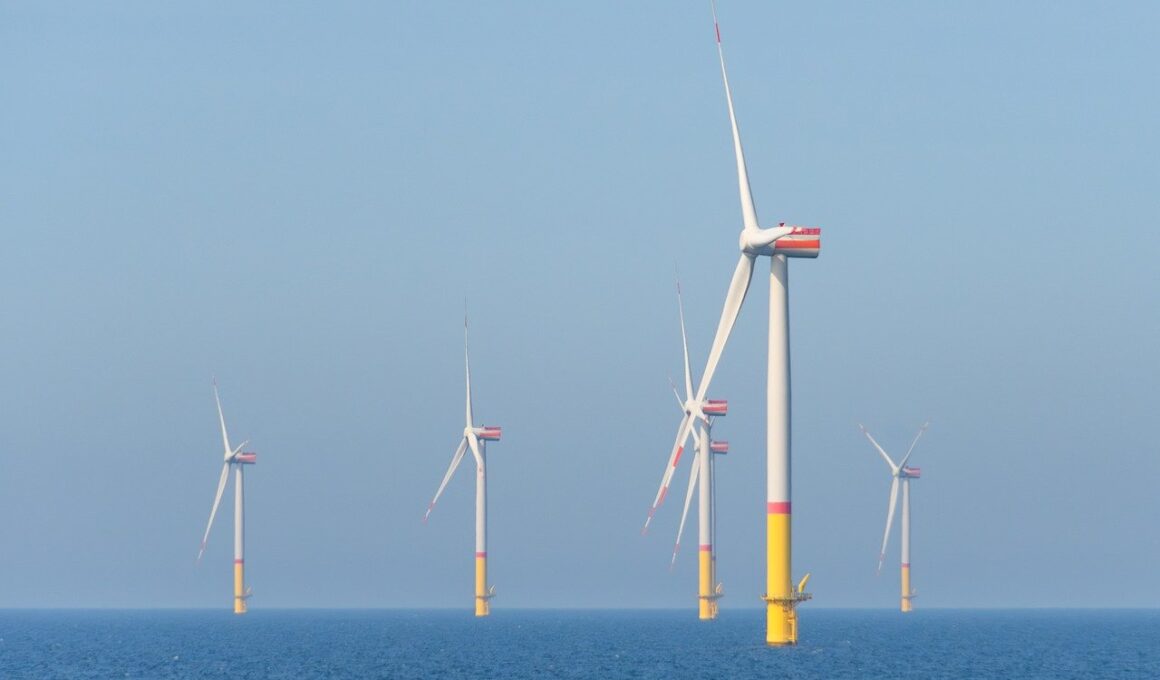Energy Sector Analysis: Navigating Volatility and Sustainability
The energy sector remains a pivotal focus for investors, analysts, and policymakers. Its complex structure comprises various segments, including fossil fuels, renewables, and nuclear energy. Shifting geopolitical dynamics coupled with environmental accountability have resulted in notable volatility within the sector. A primary motivated factor is the increasing shift towards sustainable energy sources driven by climate change concerns. This transition emphasizes the importance of renewable energy, which has become central to long-term strategies for many companies. Furthermore, operational efficiency and technological advancements are critical in ensuring that energy firms remain competitive. Understanding the diverse influences impacting stock prices in the energy market is essential. For instance, oil prices may fluctuate due to OPEC decisions or geopolitical tensions in oil-producing regions. Additionally, regulatory changes can markedly impact the profitability of energy companies, especially in the renewable sectors. Awareness of these complexities can significantly enhance investment outcomes, helping stakeholders make informed decisions. Overall, grasping market movements alongside strategic insights is fundamental to navigating the current energy landscape and securing valuable investment opportunities.
Challenges in the Traditional Energy Sector
Investing in the traditional energy sector presents various challenges and risks that need careful assessment. Market players in this area must contend with fluctuating oil prices, which are influenced by numerous factors, such as demand forecasts, supply disruptions, and international relations. Moreover, climate change regulations and policies continue to evolve, often imposing additional costs and regulatory burdens on fossil fuel companies. For example, many countries are mandating stricter emissions standards, affecting profitability. Moreover, public sentiment has shifted towards cleaner energy, leading to potential reputational risks for companies heavily invested in fossil fuels. Moreover, older infrastructure may face scrutiny regarding efficiency and safety, further straining traditional energy companies. Investors must also remain vigilant regarding technological advancements that enhance the attractiveness of renewable energy sources. This volatility often leads to significant price swings in stock valuations. Therefore, not only must investors conduct thorough due diligence but also continuously adapt their strategies in pursuit of optimal returns while balancing sustainability expectations. Recognizing and adapting to these challenges plays a vital role in successfully navigating investments in the energy sector.
The Rise of Renewable Energy
In recent years, the renewable energy sector has gained substantial momentum, attracting an increase in investor interest and funding. As climate consciousness rises among consumers and governments, investments in cleaner energy have become both a moral and strategic imperative. Solar and wind energy, in particular, have emerged as frontrunners in this shift, exemplifying technological innovation and cost efficiency. As infrastructure improves and production costs decrease, these renewable sources have become increasingly competitive with traditional fossil fuels. Additionally, governments globally are offering subsidies, tax incentives, and grants to stimulate renewable energy adoption. To support this transition, energy storage technologies, such as batteries, are evolving rapidly, enabling a more stable energy supply. Furthermore, the electrification of transportation, particularly through electric vehicles, propels demand for renewable energy sources, creating a synergistic growth effect. As major energy corporations pivot towards renewables, it fosters competition, further driving innovation and lowering costs. Consequently, investing in renewable energy offers substantial long-term benefits while aligning with global sustainability goals. In the evolving landscape, strategic investments can yield significant returns while facilitating a more sustainable future.
Market Assessments and Strategic Insights
Conducting thorough market assessments within the energy sector is paramount for identifying investment opportunities amidst volatility. Investors should consider numerous factors, such as regional energy demands, government regulations, and technological advancements, each contributing to the sector’s dynamics. Analyzing energy consumption trends can reveal invaluable insights into growth areas, guiding strategic investment aligns. Additionally, tracking economic indicators provides a better understanding of how external global events can affect energy prices and companies’ bottom lines. Key performance indicators (KPIs) specific to energy companies, including production costs and operational efficiency, should also be scrutinized. Moreover, portfolio diversification is vital to mitigating risks associated with energy investments, particularly in a sector characterized by dramatic fluctuations. Investors should consider balancing traditional energy holdings with renewable energy positions, optimizing risk exposure. Engaging with analysis reports and market forecasts enables stakeholders to anticipate changes in consumer behaviors or regulatory landscapes that could impact investments. Overall, utilizing rigorous market insights alongside strategic maneuvering can significantly bolster investment performance in the volatile and evolving energy sector.
Understanding the intricacies of energy sector investments also requires awareness of the technological landscape. Innovative technologies such as smart grids and energy efficiency solutions are gaining traction within many companies’ strategies, enhancing operational efficiency and sustainability. As organizations seek to embrace digital transformation, they are increasingly focused on how technology can create value and reduce costs. Cybersecurity also plays an essential role, as the energy infrastructure is a critical target for cyberattacks, necessitating strong defenses. Furthermore, incorporating data analytics into decision-making processes allows enhanced predictive capabilities, optimizing energy production and consumption patterns. It’s critical for investors to scrutinize technology adoption at energy companies, as those who lead in innovation are more likely to outperform their peers. Social enterprises are also emerging within the sector, emphasizing a triple bottom line approach that considers social, environmental, and economic impacts. This further highlights the need for energy firms to balance profitability with responsible practices that align with societal expectations. Investors should prioritize companies that demonstrate a commitment to sustainability and technological advancement, ensuring a forward-thinking portfolio in the energy landscape.
In conclusion, the energy sector is undergoing a transformative phase, making it an exciting area of focus for investors seeking growth opportunities. As the world pivots toward renewable energy and sustainability, it offers immense potential for those well-prepared to navigate the complexities involved. Assessing market dynamics and understanding fundamental challenges can inform sound investment strategies to thrive in today’s market. Additionally, the importance of innovation and technology should never be understated, as they serve as critical contributors to success. Investors who actively engage with evolving sectors embody resilience and adaptability, which are essential traits for thriving amidst volatility. Furthermore, maintaining a keen eye on new developments such as regulatory changes or emerging technology is vital. Emphasizing corporate responsibility alongside viable financial returns builds a compelling investment thesis. As the energy landscape continues to change, commitment to sustainability along with robust analysis can enable significant returns. In summary, those who engage actively in understanding this dynamic market can prosper, contributing positively to global goals while enhancing their investment portfolios.
Overall, the energy sector represents a unique fusion of opportunity and challenge that necessitates ongoing education and strategic foresight. Investors who prioritize comprehensive analysis, technological advancements, and social responsibility are well-positioned to capitalize on sector growth. As renewable energy segments gain traction, complemented by traditional energy dynamics, stakeholder knowledge will be invaluable in identifying viable opportunities. The balance between risk management and growth potential will dictate successful investment journeys. Investors should also communicate with experts in the field to gain insights and enhance decision-making processes that are directly related to their investment objectives. Participation in energy thought leadership platforms enables stakeholders to stay ahead of trends affecting the sector. Continuous education regarding the interplay between energy production, consumption, and regulations will provide vital context for forthcoming market movements. Moreover, as sustainability becomes increasingly crucial to modern citizenry, those aligning their investments with these values will enjoy greater acceptability and support. As such, navigating the energy sector effectively requires an amalgamation of skill, knowledge, and strategic planning, paving the way for sustainable success in an evolving marketplace.





